Red Clydeside
description: Era of political radicalism in Glasgow, Scotland
13 results
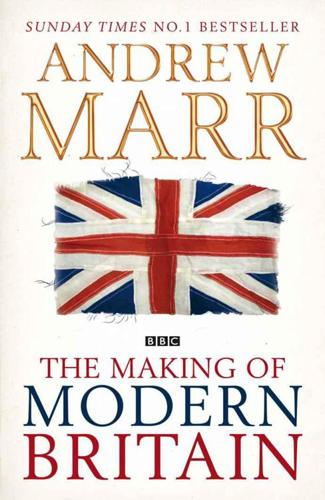
The Making of Modern Britain
by
Andrew Marr
Published 16 May 2007
Yet without Ottoline and Garsington the story of English radical culture between the wars would have been different. She not only bought work from, fed, sheltered and sustained conscientious objectors and poor artists, but gave people from different backgrounds a place to meet and exchange ideas. She was not an artist or a painter, but Garsington made her a player in the world of radical chic. Red Clydeside There were worse worlds for revolutionaries, and more serious revolutionaries too. In the final days of a freezing November in 1923 in a grimy street in Pollockshaws, just outside Glasgow, a former schoolmaster gave his only overcoat to a destitute immigrant from Barbados. Soon afterwards, aged just forty-four, the teacher himself died from cold and hunger.
…
The left’s famous enthusiasm for splits and sects began from the very start. Finally, the Labour Party was on a rising curve, absorbing former revolutionaries as it went. Between 1918 and 1922 there was a sharp rise in the Labour vote, particularly in Glasgow, Sheffield and Manchester. Of the rebel leaders of ‘Red Clydeside’, Shinwell would end up as secretary of state for war, John Wheatley would become health minister in the first Labour government, responsible for a useful housing programme, Jimmy Maxton became an MP for the Independent Labour Party, much admired by Winston Churchill. William Gallacher remained a communist, though as MP for West Fife until 1950 he was never much threat to the British state.
…
He was for years the most hated and feared radical politician in Britain, a semiofficial position later held by Nye Bevan and Tony Benn. Newspapers revealed his illegitimacy and suggested he should be taken to the Tower of London and shot. He was a founder of the Independent Labour Party (ILP), to which most of the ‘Red Clydesiders’ belonged, and a member of it for nearly forty years. When he stood for Woolwich, the London trams carried posters on the side asking blankly: ‘A Traitor for Parliament?’ As an orator, though no film exists of his great days, he was clearly spellbinding. He was an important political theorist, too.
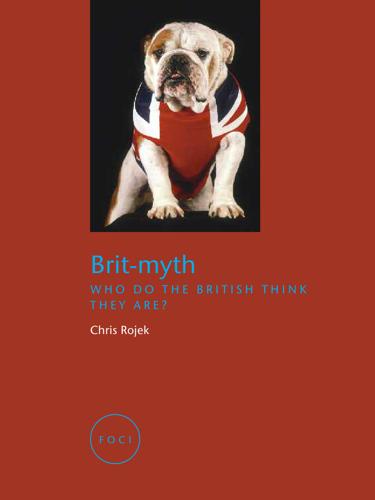
Brit-Myth: Who Do the British Think They Are?
by
Chris Rojek
Published 15 Feb 2008
Actually, it was nothing but the incorporation of semi-skilled and unskilled workers into traditional models of collective organization that supported Parliamentary representation rather than the overthrow of Parliament. The establishment expressed similar fears over the ‘Red Clydeside’ (1910–32) group of labour leaders, such as John MacLean, William Gallacher and James Maxton, and also over the General Strike of 1926; but it is untenable to regard either as a genuine revolutionary force. The Red Clydesiders knew their Marx and Engels, and they were accused of sedition by the establishment. But overwhelmingly they followed the traditional path of working class agitation, organization and Parliamentary represen94 BRIT-MYTH tation.
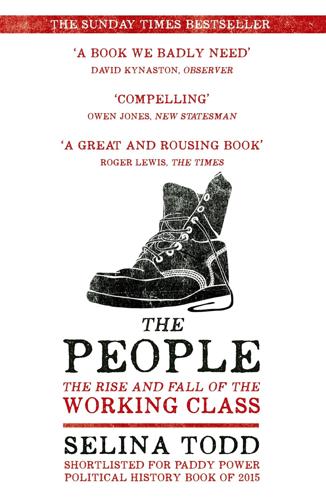
The People: The Rise and Fall of the Working Class, 1910-2010
by
Selina Todd
Published 9 Apr 2014
On 31 January hundreds of striking workers campaigning for a forty-hour week clashed with police at Glasgow’s George Square. Among those convicted was the labour activist Emanuel Shinwell. He received five months’ imprisonment for incitement to riot. William Gallacher served three months on the same charge. Gallacher, who was later to become a prominent Communist MP, was one of the ‘Red Clydesiders’ who had first come to the attention of police and politicians in 1915, when these shipbuilding workers and their wives organized rent strikes and walkouts in the shipyards. Those involved were incensed by the behaviour of local landlords and employers, who had used the arrival of hundreds of war workers in the city to raise rents and reduce wages.
…
Fear was the most significant result of the riots: fear of the working class and of what they were capable. In Luton, the mayor retired from political life, the council organized a banquet for workhouse residents, and the rioters received light sentences, reflecting the authorities’ fear of repercussions. In Glasgow the Red Clydesiders did not achieve all they hoped for but their actions checked the avaricious ambitions of their employers and landlords. In this climate many politicians cast uneasy glances at Russia, where war had resulted in revolution, and at Germany and Italy where revolution was only narrowly averted. Fear of working-class people’s collective power was to shape relations between parliament and the labour movement and, no less significantly, between employers and workers for the next decade.

Scotland’s Jesus: The Only Officially Non-Racist Comedian
by
Frankie Boyle
Published 23 Oct 2013
It could well be that politicians pushing for independence don’t want to succeed. That might sound ridiculous, but remember they’re politicians. They spend their whole lives lying to other people; why wouldn’t they be lying to themselves? Scotland has provoked fear in British politicians since the days of the Red Clydesiders. It emerged a few years ago that deliberate underestimates of Glasgow’s population have been used to starve it of public funds since Churchill’s time. The reason being that it was seen, along with Liverpool, as the most likely starting point of a revolution. It’s no coincidence that Scotland today is a sedated culture.
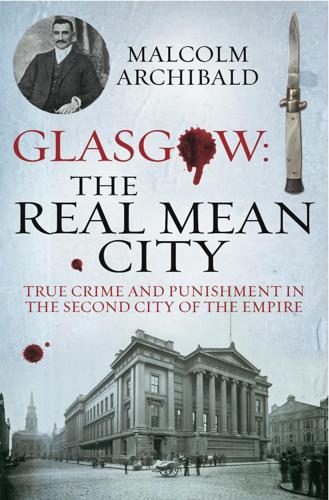
Glasgow: The Real Mean City
by
Malcolm Archibald
Published 31 Mar 2013
I did not know then that Glasgow contributed an estimated 200,000 men to the British Army in that horrendous mass slaughter, or that in 1914 Glasgow reputedly built more ships than all of Germany or the United States of America. I was later to hear of the landlords who tried to evict women while their men were fighting in France, leading to the largest rent strike in British history and proving that Glaswegian women were every bit as formidable as their men. Much later, I read about Red Clydeside and a British government so afraid of supposed Glaswegian communism that it sent 10,000 English troops backed by tanks and artillery to the city, while confining the local Highland Light Infantry to barracks in case it joined the strikers. I heard of the police baton charge in George Square that was repelled by strikers who were campaigning purely for decent working conditions.
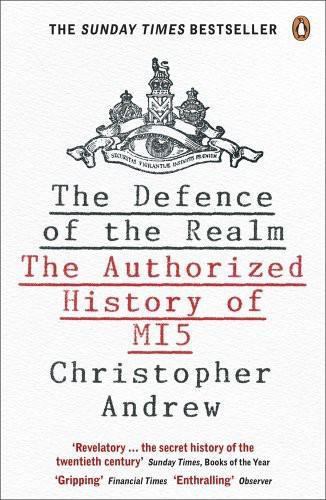
The Defence of the Realm
by
Christopher Andrew
Published 2 Aug 2010
Winston Churchill, then home secretary, could not resist visiting the scene and advising on operations from the front line. Leggett, Cheka, pp. 266–7. Cook, M: MI5’s First Spymaster, pp. 266–7. 67 ‘Revolutionary Agencies at Work’, pp. 62ff., TNA KV 1/43. 68 McLean, Legend of Red Clydeside, ch. 7. 69 ‘Historical Sketch of the Directorate of Military Intelligence during the Great War of 1914–1919’, p. 13, TNA WO 32/10776. Biographical details on Labouchere in interwar MI5 Who’s Who. 70 McLean, Legend of Red Clydeside, p. 83. 71 Ibid., p. 84. 72 CX 491, 16 Sept. 1916, TNA KV 2/1532. 73 Thomson, Scene Changes, p. 312. E. F. Wodehouse (New Scotland Yard) to Home Office, 23 April 1917, TNA HO 45/11000/223532.
…
Among them was Peters, who was acquitted at his trial – after being ably defended by, ironically, William Melville’s barrister son James (later a Labour solicitor general).66 During 1916 G1 (which investigated suspected espionage cases) discovered links between the Communist Club and the Diamond Reign public house, which, it reported, was ‘a meeting place for bitterly hostile British citizens of German birth’. G1 reached the alarmist conclusion that the Communist Club ‘fomented’ the strike wave at Clydeside munitions factories in the early spring of 1916.67 Though there is little doubt about the Club’s support for ‘Red Clydeside’, it is unlikely to have had a significant influence on the strikes. There were, however, widespread suspicions in Whitehall that subversive forces were at work. Christopher Addison, Parliamentary Under Secretary to the Minister of Munitions, David Lloyd George, suspected ‘a systematic and sinister plan’ to sabotage ‘production of the most important munitions of war in the Clyde district’ in order to frustrate the great offensive planned on the Western Front in the summer of 1916.
…
Roger and Robinson, Ronald, ‘The Imperialism of Decolonisation’, Journal of Imperial and Commonwealth History, vol. 22, no. 3 (1994) Lustgarten, Laurence and Leigh, Ian, In from the Cold: National Security and Parliamentary Democracy (Oxford: Oxford University Press, 1994) Lyubimov, Mikhail, ‘A Martyr to Dogma’, in Rufina Philby (with Hayden Peake and Mikhail Lyubimov), The Private Life of Kim Philby: The Moscow Years (London: St Ermin’s Press, 1999) McClellan, ‘Africans and Blacks in the Comintern Schools’, International Journal of African Historical Studies, vol. 26, no. 2 (1993) McGladdery, Gary, The Provisional IRA in England: The Bombing Campaign in England (Dublin: Irish Academic Press, 2006) Macintyre, Ben, Agent Zigzag: The True Wartime Story of Eddie Chapman, Lover, Betrayer, Hero, Spy (London: Bloomsbury, 2007) Macintyre, Ben, Operation Mincemeat: The True Spy Story that Changed the Course of World War Two (London: Bloomsbury, 2010) McIvor, Arthur, ‘ “A Crusade for Capitalism”: The Economic League 1919–39’, Journal of Contemporary History, vol. 23 (1988) McKale, Donald M., The Swastika outside Germany (Kent, Ohio: Kent State University Press, 1979) McLaine, Ian, Ministry of Morale (London: Allen & Unwin, 1978) McLean, Ian, The Legend of Red Clydeside (Edinburgh: J. Donald, 1983) McMahon, Paul, ‘Covert Operations and Official Collaboration: British Intelligence’s Dual Approach to Ireland during the Second World War’, Intelligence and National Security, vol. 18, no. 1 (2003) McMahon, Paul, British Spies and Irish Rebels: British Intelligence and Ireland 1916–1945 (Woodbridge, Suffolk: Boydell Press, 2008) MacMillan, Margaret, Peacemakers: The Paris Conference of 1919 and its Attempt to End War (London: John Murray, 2001) McSmith, Andy, Faces of Labour: The Inside Story (London: Verso, 1996) Maddrell, Paul, Spying on Science: Western Intelligence in Divided Germany 1945–1961 (Oxford: Oxford University Press, 2006) Madeira, Victor, ‘Moscow’s Interwar Infiltration of British Intelligence 1919–1929’, Historical Journal, vol. 46 (2003) Madeira, Victor, ‘ “No Wishful Thinking Allowed”: Secret Service Committee and Intelligence Reform in Great Britain 1919–23’, Intelligence and National Security, vol. 18 (2003) Madeira, Victor, ‘ “Because I Don’t Trust Him, We Are Friends”: Signals Intelligence and the Reluctant Anglo-Soviet Embrace 1917–24’, Intelligence and National Security, vol. 19 (2004) Madeira, Victor, ‘British Intelligence in “A New Kind of War” against Soviet “Subversion” ’ (PhD dissertation, University of Cambridge, 2008) Magan, Maxine, In the Service of Empire (privately published, 2002) Magan, William, Middle Eastern Approaches: Experiences and Travels of an Intelligence Officer (Wilby, Norfolk: Michael Russell, 2001) Major, John, The Autobiography (London: HarperCollins, 1999) Mangold, Tom, Cold Warrior: James Jesus Angleton: The CIA’s Master Spy Hunter (New York/London: Simon & Schuster, 1991) Marder, A.
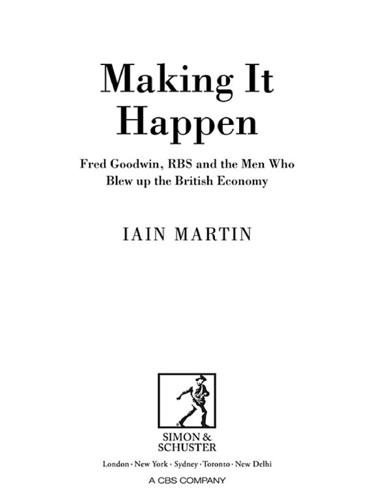
Making It Happen: Fred Goodwin, RBS and the Men Who Blew Up the British Economy
by
Iain Martin
Published 11 Sep 2013
Initially Brown was a standard-issue socialist of the era, who believed that the Thatcherite Tories were on a mission to destroy British industry and make society less equal by encouraging the individual pursuit of greedy self-interest. He had written a biography of James Maxton, the glowering socialist firebrand MP from the ‘Red Clydeside’ period in the early decades of the twentieth century, when radicalism and industrial strife dominated Glasgow working-class politics. Gradually, however, Brown also became more interested in the literature on markets. He still despised Tory policies but nationalisation and the command of the economy traditionally advocated by the left didn’t seem like a suitable response to the needs of an era that was going to be increasingly global.
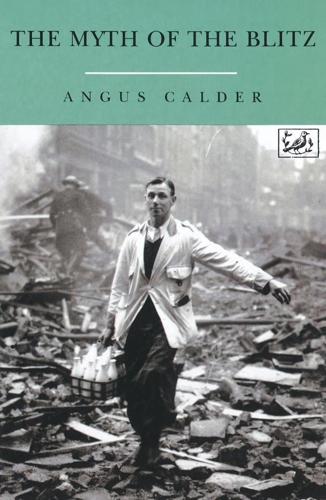
The Myth of the Blitz
by
Angus Calder
Published 28 Jun 2012
Calder, The People’s War, Cape 1969, 245. 11 Addison, op. cit., 76. 12 M. Foot, Aneurin Bevan, vol. 1, 1897–1945, MacGibbon & Kee 1962, 320–21. 13 W. Knox, ed., Scottish Labour Leaders 1918–39: A Biographical Dictionary, Mainstream (Edinburgh) 1984, 119. 14 R.J. Morris, review of I. McLaine, The Legend of Red Clydeside, in Scottish Economic and Social History, vol. 4, 1984, 90–1. 15 C. Harvie, No Gods and Precious Few Heroes: Scotland 1914–1980, Edward Arnold 1981, 15–23, 32. 16 R.P. Arnot, A History of the Scottish Miners, Allen & Unwin 1955, 247, 252, 257: Knox, ed., op. cit., 252–3. 17 John McNair, James Maxton – The Beloved Rebel, 1955, 289; A.
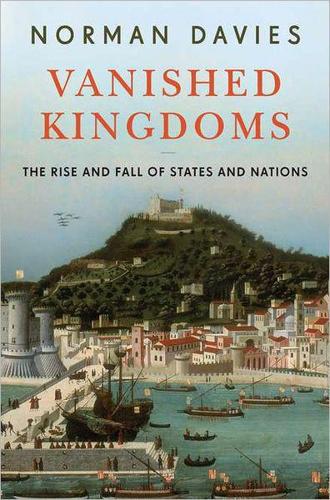
Vanished Kingdoms: The Rise and Fall of States and Nations
by
Norman Davies
Published 30 Sep 2009
The dockside has been concreted over to form a car park, and supermarkets fill the space once used by giant warehouses. In some guidebooks to Scotland, the town is not even mentioned. Industrial decline hit the Vale of Leven earlier. Many factories there were closed down before 1939. Persistent unemployment bred radical politics, and the epithet of ‘Little Moscow’ was coined to match that of adjacent ‘Red Clydeside’. In the 1950s the run-down district was used to locate several of Glasgow’s largest projects of overspill housing. Forty and fifty years on, the massive, dilapidated estates such as the Mill of Haldane in East Balloch were the scene of equally massive campaigns of attempted urban renewal. Yet a positive development began when one of Scotland’s leading whisky distillers moved into Dumbarton to employ the laid-off dockers.
…
Lane 113–14n Portugal 171, 215, 507, 521, 522 Poska, Jaan 706 Possevini 279 Potocki, Andreas 471 Potockis 275, 284, 455 Potsdam 710 Conference 387–8 Poznań 289 Praga, Battle of 289 Prague 625, 626 Rudolf II collection 481 Slav Congress 469 Premyslid dynasty 345 Preti, Mattia 221 Pritsak, Omelian 478 Pronkssödur (Bronze Soldier) 696 Prosper of Aquitania, St 20 Prosvita Society 471 Protestant Ascendancy 650, 660, 667, 679 Proudhon, Pierre-Joseph 730 Provence 105, 117, 123, 125, 174, 408 counts of 118–19 Kingdom of (le Royaume de Basse-Bourgogne) 109, 109–12 Provisional IRA (Provos) 668, 669, 672, 677 Prussia/Borussia and the Prussians 242, 248, 256, 282, 283, 284, 286, 336–92, 337, 349 13th century 338–44 14th century 345–6 15th century 346, 346–9, 349 16th century 349–55 17th century 355–66, 360 18th century 132, 288, 366–7, 368–70, 369; growth of the Kingdom of Prussia, 1701–95 369 19th century 373–7, 374, 521, 557 20th century 374, 377–88; abolition of Kingdom of Prussia 380; ‘Flight from the East’ 384–5; inter-war 382; Potsdam Conference 387–8; termination of Prussia 387–8, 734; World War I 377–80; World War II 382–6, 384 ‘Allied Scheme’ of 370–72 Battle of Waterloo 533 Berlin’s memory site of 389–93 and Brandenburg 355–6, 358; state of Brandenburg-Prussia 358–60, 360, 361–2, 363–6 and the Commonwealth of Poland-Lithuania 349, 353–4, 355, 362–6; Prussian homage 350–52 Duchy of Prussia 352–65, 353 early Prusai 336–7 East Prussia 348, 355, 373, 378, 381, 382, 383–8 Free State of Prussia (Weimar Prussia) 380–88 geography of 338 and Germany 340, 343–4, 345, 351–3, 364, 367–8, 373; and the Nazis 381–8 Hohenzollern Kingdom of 351–67, 369, 373–80, 374 Junkers 360, 381 language (Prusiskan, Old Prussian) 343–4 Peasants War 354 ‘Prussian coup’ 381 Prussian Estates 352, 354, 356, 362 Prussian League 348 ‘Prussian militarism’ 370 Royal Prussia 348–50, 349, 369 and Russia 368–9, 372, 374; Russo-Prussian treaties (1793) 288 Schmalkaldic League Wars 354 and the Soviet Union, World War II and aftermath 382–8 and the Teutonic Knights/Ordensstaat 339–44, 345–8, 346, 350–53 Prussian Blue 367 Prydain 43, 44 Przemyśl 453, 475 Pskov 278–9 Ptolemy 46, 47 Puigcerda 175 Puławy 307, 482–3, 485 Putin, Vladimir 329, 331, 335, 727–8 and Estonia 696–7 Putina, Lyudmila 329 Pyrenees 156–60, 157 Treaty of the 222 Quedlinburg Chronicle 246 Quinctianus of Civitas Rutenorum 23 Racławice, Battle of 289 Radek, Karl 478 Radet, Étienne 526, 528, 529, 535 Radović, Andrija 592, 597, 599, 601, 602, 607 Radziwiłł, Barbara, queen 264, 269–70 Radziwiłł, Jan I 264 Radziwiłł, Janusz 281 Radziwiłł, Karol Stanisław ‘Panie Kochanku’ 287 Radziwiłł, Michal Kazimierz ‘Rybeńko 287 Radziwiłł, Mikołaj ‘the Black’ 264 Radziwiłł, Mikołaj Krzysztof ‘Sierotka’ 264 Radziwiłł, Mikołaj ‘the Red’ 264, 266, 271–2 Radziwiłłs 263–4, 264, 275, 278, 284–5, 294 RAF (Royal Air Force) 383 Rainald/Renaud III 124, 128 Ramiro I of Aragon 163, 164–5 Ramiro II El Monaco 170 Ramolino, Maria-Letizia 500 Ramón Berenguer I El Vell 168–9, 174, 175 Ramón Berenguer IV El Sant 170, 177 Ravenna 24, 97 Raymond de Peñafort, St 181–2 Ražnatović, Željko 614–15 Reagan, Ronald 716 Real IRA 673 Reconquista against the Muslims 115, 164, 166–9, 173, 181, 183, 184 Red Army 89, 301, 302, 382–7, 446, 478, 479, 618, 631, 702, 705, 710, 712, 713, 714 Red Clydeside 40 Red Cross 421 Red Ruthenia 268, 346 Redemption of Christian Captives, Order for 181 Redl, Alfred 471–2 Refit Site One 40 Reged-ham (Rochdale) 56 Reges Gothorum 23 Řehoř, František 464 René d’Anjou 211, 212, 216–17 Renfrew, Barony of 79 Rennes 102 Rennes-le-Château 27 Renzi, Matteo 498 Republic of Ireland Act 664 Rere/Rear/Rey Cross, Stainmore 72 Restoration of Order in Ireland Act (1920) 653 Retinger, Joseph 478 Reval see Tallinn/Reval Revay, Julian 626, 633 Revolt of the Barretinas 222 Rhedae 27 Rheged 49, 53, 56–57, 59–60 Rheinfelden 121 Rhône valley 109, 110, 115, 118, 125, 179 Rhun, son of Urien 60 Rhun map Arthgal 69–70, 77 Rhydderch (Roderick) Hael 55, 57, 61 Ribagorza 159, 162, 163, 164, 221 RIC (Royal Irish Constabulary) 652–3 Riccarton Castle 79 Richard the Justiciar, count of Autun 106, 112 Richelieu, cardinal 407 Richildis, queen 106 Ricimer 96–7, 97 Rieti, Golden Bull of 340 Riga 248, 285, 338, 342 Treaty of 306 Rimsky-Korsakov, Alexander 294 Riothamus 23 Ripoll 175 abbey of 184 Risorgimento (Unification of Italy) 413, 416, 419, 437–8, 735 fall of Rome 429 Rob Roy MacGregor 83 Robert le Vieux 106 Robert of Naples 197 Robinson, Mary 672 Robinson, Peter 677 Rock, Kingdom of the see Alt Clud, Kingdom of the Rock Rodestvedt, Kelly 571 Rodez, counts of 175 Rodrigo Díaz de Vivar (El Cid) 167–9 Roger Deslaur/de Flor (Ruggier Desflors) 196 Rogneda 246 Rogvolod 246 Rogvolodichi 246 Rohatyn 442 Rokossowski, Konstantin 302, 384 Romagna 422, 423, 426, 505 Roman Catholic Church in Galicia 462 in Ireland 644–5, 659–61, 671–2 in Litva 253, 255, 266, 303 in Prussia 342–3 Second Vatican Council 671 Roman Empire 16, 23, 91–3, 321, 336 and the Byzantine Empire 313–17, 321; see also Byzantine Empire/Byzantines Holy see Holy Roman Empire Roman Aquitania 17, 18–20, 24 Roman Gaul 17 Roman, Pan 446 Romanovs 368–9, 570, 587 Rome Charlemagne in 104 fall, under Risorgimento 429 Festa della Repubblica 397–400 French driven out by Neapolitan troops 529 French occupation (1798) 506, 507 modern 398 sacking by Alaric the Visigoth 16 sacking by the Vandals 22 Roncevalles, Pass of 162 Roosevelt, Franklin D. 10 Rosenau Castle 542–3, 544, 545–6, 557, 558, 562, 567, 570 Rosselló 177–9, 200, 222 Roth, Joseph 478 Rothesay 38 Rousillon/Rosselló 153, 154–5, 157, 158, 162, 177–9, 185, 200, 222 Languedoc-Roussillon 153, 226 Rousseau, Jean-Jacques 729–30, 734–5 Roxalana/Hurrem 442–3 Royal Academy, London 320 Royal Air Force (RAF) 383 Royal and Parliamentary Titles Act (Ireland, 1927) 661 Royal Irish Constabulary (RIC) 652–3 Royal Navy 40, 41, 505, 506, 507, 663, 679, 705 Royal Ulster Constabulary (RUC) 654, 666, 667, 668, 669 RSFSR (Russian Soviet Federative Socialist Republic) 328, 702n, 703, 721 Ruaidre Ua Chobar 640 RUC see Royal Ulster Constabulary Rudolf I, emperor 132 Rudolf II 113–14 Rudolf III 114, 117, 118, 119 Rudolf of Auxerre 110–12 Ruffo, cardinal 508 Ruggier Desflors (Roger Deslaur/de Flor) 196 Ruggiero di Lauria 193 Runciman, Sir Steven 318 Rurik (Hroerekh) 243, 244 Rurikids 245–7 ‘Ruritania’ 623, 632–4 Rus′ 242, 243, 245, 246–8, 247, 249, 267 Kievan Rus′ 244, 245, 265 Ruthenia see Ruthenia/Ruthenians Rusalka Dnistrovaia 467 ruski 243, 261, 265, 270, 282, 303, 304, 450, 460–61 Ruskin, John 317 Russia/Russians Bolsheviks see Bolsheviks and Estonia see Estonia and France 505–6 and Galicia 471–2, 473, 474, 475 and Germany 377–80, 701–2, 703–4 Great Northern War 283 Kaliningrad 327–33, 335–6 and Litva 283–4, 290, 291–303, 300–301; partitioning of Poland-Lithuania 286, 287–9 and Montenegro 587–8, 597–8 nationalism 298 Ottoman war 287–8 provisional government under Kerensky 701, 704, 738 and Prussia 368–9, 372, 374, 382–8; Russo-Prussian treaties (1793) 288 Russian Civil War 698, 702, 705 Russian Federation 725, 727–8 Russian Socialist/Soviet Federative Soviet Republic (RSFSR, Soviet Russia) 328, 702, 703, 717, 721 Russo-American START Treaty 335 Russo-Japanese conflict 590 Russo-Polish war (1791–2) 288 Soviet Union see Soviet Union (CCCP) Tartu Treaty 705–6 and terminology 291 Tsarist Empire of ‘all the Russias’ 699–701, 703 and the Turks 288, 587–8 and the US 727 Western Russia in the nineteenth century 292 White Russia 291 World War I 377–80, 701–2, 703 YedRo (‘United Russia’) Party 335 Russian Orthodoxy 265, 295, 298, 463, 719 Russian Socialist/Soviet Federative Soviet Republic (RSFSR) 328, 702n, 703, 717, 721 Russophiles 288, 463, 625, 632 Rusticus of Narbonne, St 20 Rusyns 623–34 see also Ruthenia/Ruthenians Ruthenia/Ruthenians 248, 249, 251, 265, 266–7, 267, 275, 277, 298 Black Ruthenia 249, 289 Carpathian Ruthenia see Carpatho-Ukraine and Galicia 450, 451, 456, 458, 462, 463, 470, 471, 477; literary movement 467; modern Halich 448–9; Ruthenian Congress 470; Supreme Ruthenian Council 470 Orthodox Ruthenians 347 Red Ruthenia 252, 268, 346 Rusyns 623–34 White Ruthenia 249, 251, 254, 260, 265, 267, 284–5, 291, 295; see also Belarus Ruthenian Congress 470 Sabaudia see Savoy/Sabaudia Sacher-Masoch, Leopold von 467 Sachsen-Coburg-Kohary, Ferdinand 559 St Andrews Agreement 674 St Bartholomew’s Eve massacre 277 St Germain, Treaty of 625 St Gotthard pass 125 St Jean-de Maurienne 435 St John, Bayle 402, 416, 417–19, 434 St Maurice 112 St Petersburg/Leningrad/Petrograd 301, 335, 383, 699, 703, 704, 710 Siege of Leningrad 383, 712, 714 Saint-Quentin 407 ‘The Salmon and the Ring’ 56 Salses 158 Salvatico, Odoardo 515 Salza, Hermann von 339–40 Sambia/Sambians 338, 342, 343 Samogitia 248, 275 San Ildefonso, Treaty of 507, 522 San Juan de la Peña, monastery 184–5 San Martino 421 San Miniato 501 San Pedro de la Nava, Zamora 29 San Pedro de Siresa monastery 164 Sancho El Mayor of Navarre 155, 162–3 Sancho the Populator 171 Sanfedisti 508 Sanguszko 272 Santángel, Luis de 218 Santarosa, Santorre de 414 Sapieha, Lev 275 Sapiehas 455 Saracens 104, 117, 186–7 corsairs 110 Sardinia 197, 201–2, 206, 220, 501 Franco-Sardinian Treaty 423–5, 436 late 18th-century Kingdom of 410, 735 and Sabaudia 409–10, 411–12, 415–17, 421, 423–5, 428–9, 735; Treaty of Turin 423–5, 436 Sarmatism 284 Sarmatian Myth 350 Saturnin, St 20 Saunière, Bérenger 27–8 Sava, St 592 Savaric of Auxerre 104 Saville Inquiry 677 Savoy League (Ligue Savoisienne) 436 Savoy Manor 406 Savoy/Sabaudia 401–38 counts of 405 and England 406 and France 404–6, 407, 412, 414, 417, 435, 436; annexation 412, 425–7, 435, 436, 501; Napoleon III 419–22, 423, 425; Nice 409, 410, 412, 421, 423–5, 426; plebiscite 423–8, 435; Treaty of Turin 423–5, 436 and Italy 413–14, 421–3 nationalism 414–15 and Piedmont 403, 404, 406, 409, 410, 412, 414, 415, 416 and the plebiscite 423–8, 435 provinces 402; see also specific provinces and Sardinia 409–10, 411–12, 415–17, 421, 423–5, 428–9, 735; Treaty of Turin 423–5, 436 Savoy province 402, 412 shield of the House of Savoy 400 skiing industry 434–5 and Switzerland 409, 425–6 Turin Treaty 423–5, 436 wines 433 World War II 436 Saxe-Coburg and Gotha Albrecht, prince of see Albert, prince Duchy of 545, 557, 559–70; abolition of 570 Saxe-Coburg family 431, 543–73, 564 Saxe-Coburg soup 559 Saxony 368 House of (Wettins) 543, 550, 555–6 Saxon mini-states, c. 1900 544; Duchy of Saxe-Coburg and Gotha 545, 557, 559–70 Schlieffen, Alfred von 378, 379 Schlieffen Plan 378 Schloss Rosenau see Rosenau Castle Schmalkaldic League Wars 354 Schollenen Gorge 125 Schratt, Katharina 469 Schröder, Gerhard 329, 331 Schulz, Bruno 478 Schwarz, Chris 486 Schwerin, Otto von 362 Scone, abbey of 65 I Scorpioni (The Scorpions) 499 Scotch whiskey 40 Scotland 40–41, 66, 75–6, 81–3, 683–5 Scots 17, 37n, 42, 53, 62, 63, 70, 72, 81 Alban 74 Picto-Gaelic fusion 37n, 63, 65–6 Scotti (Hibernian pirates) 37 Scott, Sir Walter 82–3 Scottish Home Rule Bill 679 Scottish Labour Party 680 Scottish National Party (SNP) 679–80, 683 Scottish Presbyterians 641, 667 SDLP (Social Democratic Labour Party) 674, 681 Segura, Isabela 190–91 Selgovae 46, 47 Selim II 442 Senchus (Register) of Dalriada 63 Senlis, Treaty of 139 Serbia/Serbs 580–81, 581, 583, 587, 589–90, 594–5, 600–610, 614–16, 619, 733, 736–7 and Austria 597–9 ‘Greater Serbia’ 597, 598–9, 604 see also Montenegro/Tsernagora; Serbs, Croats and Slovenes, Kingdom of Serbia and Montenegro (country) 577 Serbian Orthodox Church 581, 592, 605, 614 Serbs, Croats and Slovenes, Kingdom of 597, 604–6, 608, 614 Sergianni (Giovanni) Caracciolo 211 Serra, Orso 423–4 Serristori, Averardo 515 Servanus, St 55 Seton-Watson, Hugh 8 Seton-Watson, R.
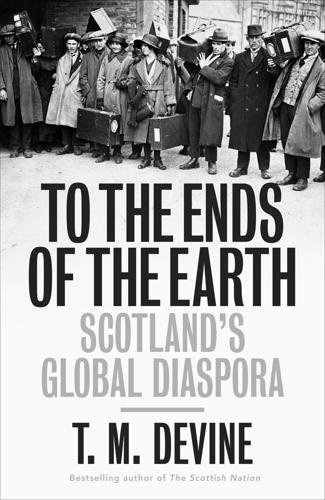
To the Ends of the Earth: Scotland's Global Diaspora, 1750-2010
by
T M Devine
Published 25 Aug 2011
It was not simply the cost and availability of labour that was of critical importance to these great staple industries. Also of relevance was the response of the workforce. By the early twentieth century, trade unionism was expanding and labour relations became more tense. This was symbolized by the foundation of the Scottish Trades Union Congress in 1897. But the later militant image of ‘Red Clydeside’ did not at all fit the west of Scotland in earlier decades. The Glasgow Cotton Spinners’ Union had successfully resisted the introduction of self-acting spinning mules, but in the strike of 1837 and the aftermath it was effectively destroyed and never again represented a threat to innovation.
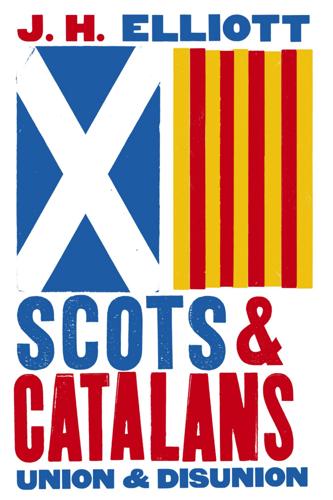
Scots and Catalans: Union and Disunion
by
J. H. Elliott
Published 20 Aug 2018
The government’s response, which included the arrest of leaders of the protest movement on charges of sedition, was far from the kind of brutal repression with which the authorities sought to suppress labour unrest in Barcelona, but it had similar polarizing consequences. Many condemned the strikers as unpatriotic revolutionaries for going on strike in wartime, and agitators earned the enduring name of ‘Red Clydeside’ for the dockyards. The strikers, for their part, would neither forget nor forgive the alliance between the Liberal Party and the bosses. Meanwhile, another mass protest took the form of a Rent Strike in Glasgow over attempts to impose higher rents. This was a city where the influx of large numbers of munition workers aggravated the overcrowding in what were already horrific housing conditions.
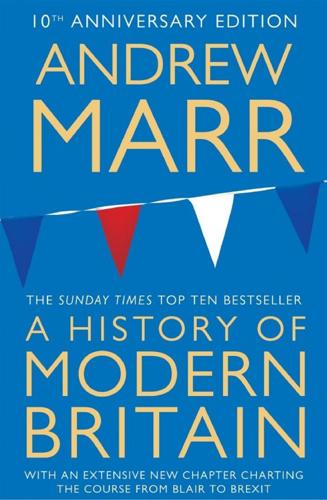
A History of Modern Britain
by
Andrew Marr
Published 2 Jul 2009
So for Labour MPs, nationalizing the coal industry was what they were in politics for, as well as sweet revenge. The job was given to one of the government’s older and more ideological members. Manny Shinwell had been a tailor’s boy in London’s East End before moving to Glasgow and emerging as a moving force on ‘Red Clydeside’. He was a stirring speaker and veteran MP but when handed the task of nationalizing coal and electricity, he found there were almost no plans or blueprint to help him. All anyone could dredge up was a single Labour pamphlet written in Welsh. Shinwell managed the job by the due day, 1 January 1947.

Vanished Kingdoms: The History of Half-Forgotten Europe
by
Norman Davies
Published 27 Sep 2011
The dockside has been concreted over to form a car park, and supermarkets fill the space once used by giant warehouses. In some guidebooks to Scotland, the town is not even mentioned. Industrial decline hit the Vale of Leven earlier. Many factories there were closed down before 1939. Persistent unemployment bred radical politics, and the epithet of ‘Little Moscow’ was coined to match that of adjacent ‘Red Clydeside’. In the 1950s the run-down district was used to locate several of Glasgow’s largest projects of overspill housing. Forty and fifty years on, the massive, dilapidated estates such as the Mill of Haldane in East Balloch were the scene of equally massive campaigns of attempted urban renewal. Yet a positive development began when one of Scotland’s leading whisky distillers moved into Dumbarton to employ the laid-off dockers.